
December 2024 Print Edition
Just Ask Jennifer: New SSA-1696–Your Questions Answered!
Jennifer Cronenberg, NOSSCR Senior Counsel and Director of Legal Information
If my inbox is any indication, all of you noticed that SSA did an interesting job rolling out the new Form SSA-1696. While we know the past two weeks have been a little bumpy, rest-assured, I finally have answers to your questions!
First, SSA is actively (and ongoingly) updating the FAQ on their website regarding the new Form SSA-1696 and the other elements of the entity process – so if you find yourselves with outstanding questions, I encourage you to check the FAQ.
Now to answer the main questions that I’ve received:
- Is there a grace period where the old version of Form SSA-1696 will still be accepted?
- No. Any Form SSA-1696 dated 12/9/2024 or after MUST be on the new version of the form.
- We pointed out that this is not reasonable given that the form was not made available until mid-morning on 12/9/2024, and the notice that prior versions would no longer be accepted was not posted until 12/10/2024; nevertheless, the policy stands that any SSA-1696 dated on or after 12/9/2024 must be on the new form.
- HOWEVER, SSA MUST still process the old version of the 1696 if it is signed and dated prior to 12/9/2024.
- SSA has added a NOTE to GN 03910.040(A)(2) reflecting these changes; we have asked that they add additional clarifying language to match the language used in CJB 24-02.
- No. Any Form SSA-1696 dated 12/9/2024 or after MUST be on the new version of the form.
- Is there a moratorium on processing Form SSA-1696 at Field Offices?
- No. Last week SSA did “slow down the processing” of SSA-1696s once they realized how widespread the confusion was. They have offered additional guidance to Field Office staff and will continue to monitor the situation, but SSA-1696s should be getting processed (albeit potentially slower than usual while the FO staff adjust to the changes).
- What happened to the disclosure language from the old SSA-1696 that authorized release of information to a representative’s staff?
- SSA reports that “Individuals no longer have the option to opt out of these disclosures, so we do not need to collect this consent information. On February 27, 2024, we published a federal register notice 89 FR 14554 which updated the routine uses for the claims folder systems of record (60-0089) (link to agency SORNS) to include disclosure to their appointed representatives and those working with such representatives (including, but not limited to, partners, associates, and contractors) when the information pertains to the individuals whom the appointed representative is representing.“
- Are we required to list the auxiliaries and their SSNs on the SSA-1696 in order to capture those fees?
- No, but it would be helpful if you could. Partial information is acceptable (so you can list names and not SSNs).
- Here’s SSA’s official response: “According to policy in GN 03910.025C., representatives may be eligible for fees from any auxiliary cases that flow from the primary claimant’s (Number Holder) case. We may authorize fees to the Number Holder’s representative(s) from auxiliary benefits, such as those awarded to the Number Holder’s children, including those who do not live in the same household, when those children are not independently represented. To ensure that we timely and correctly withhold past-due benefits from any such auxiliary claimant, we request this information from the representative. Providing this information will streamline the representative’s fee payment process and improve fee payment accuracy for awards with auxiliary claimants. Representatives who do not have this information or do not wish to provide it can submit the form to us without the “Other Claimants” section completed.”
Please continue to report to me any issues that you’re seeing out in the field that don’t jive with this information and/or with the answers in SSA’s FAQ. The greater detail you can provide in your reports (date, time, FO location, name of FO worker) the better. We are grateful for your questions, your feedback, and your patience as we work to bring you answers and improvements to this process.
Dispatches from Camp: Updates from the CEO
David Camp, NOSSCR CEO
A Productive Year
Looking back on NOSSCR’s 2024, I hope you’ve enjoyed the expansion of NOSSCR’s communications, services, and events. We added more regional conferences, online CLE, and substantive communications—all while refreshing our branding and website. Our Nashville conference was a return to the 1,000+ attendance of many years ago, and your reviews tell us it went well. We’re also encouraged to see that registration for the April national conference in Washington is running well ahead of the pace of prior conferences, including our new option for streaming.
As for our advocacy, it was an extremely productive year. Much of that success was due to our relationship with Commissioner O’Malley, who will be remembered as one of the most effective Commissioners. He was engaged in the work, and he relied on NOSSCR with direct communication at all hours. That relationship was bolstered—as always—by NOSSCR’s reputation for being bold yet never wrong, and by deep productive relationships with the leadership of all SSA components. By now, most of you will have received a fee reflecting the increased cap—an achievement that we now must work to protect. With this week’s launch of an expanded Representative Call Center, you’ve seen just one of the many examples of seeds planted by our work with Commissioner O’Malley—seeds that will sprout in the months and years to come under the leadership of others.
Later, we hope to see a proposed revision of the musculoskeletal listing, access to more evidence earlier (including the “DDE”), expanded return to work efforts, and additional information available in the new AARPS portal (using the more secure login options of login.gov or id.me). We’re pushing hard on the cost and burdens of medical records, and hope to provide you with meaningful updates by the time of our April conference in Washington.
As we enjoy the holidays, we should all take note of the value of excellence in the leadership of SSA, and I hope you appreciate that NOSSCR is your voice—making improvements for you and your clients whenever there are opportunities.
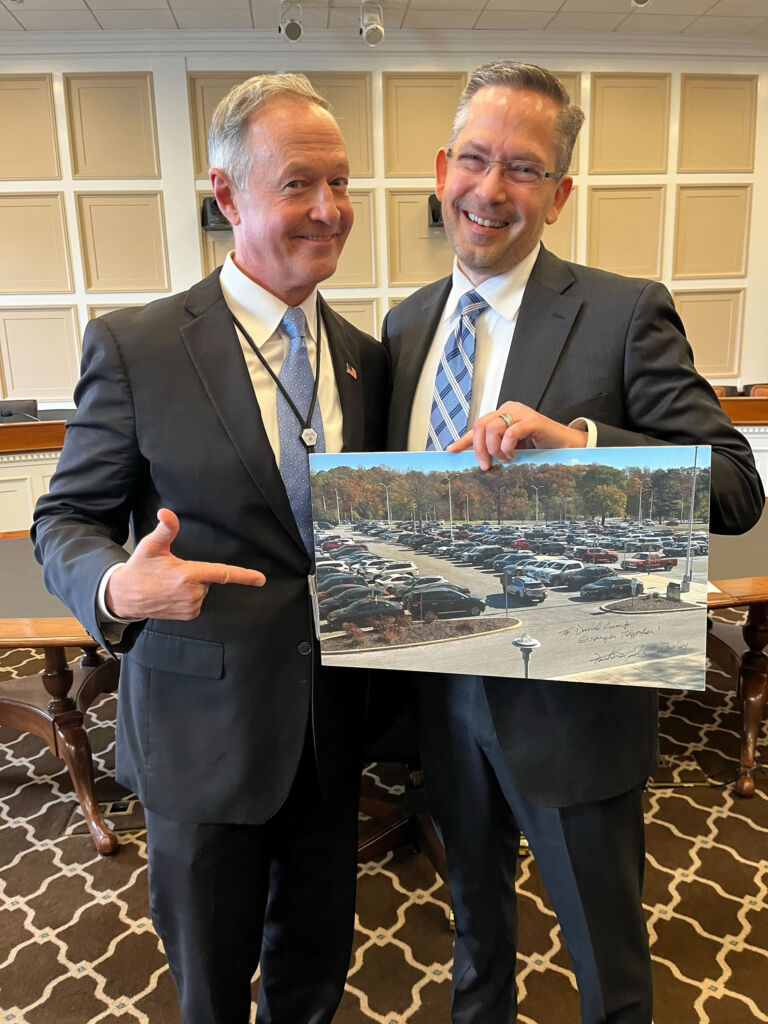
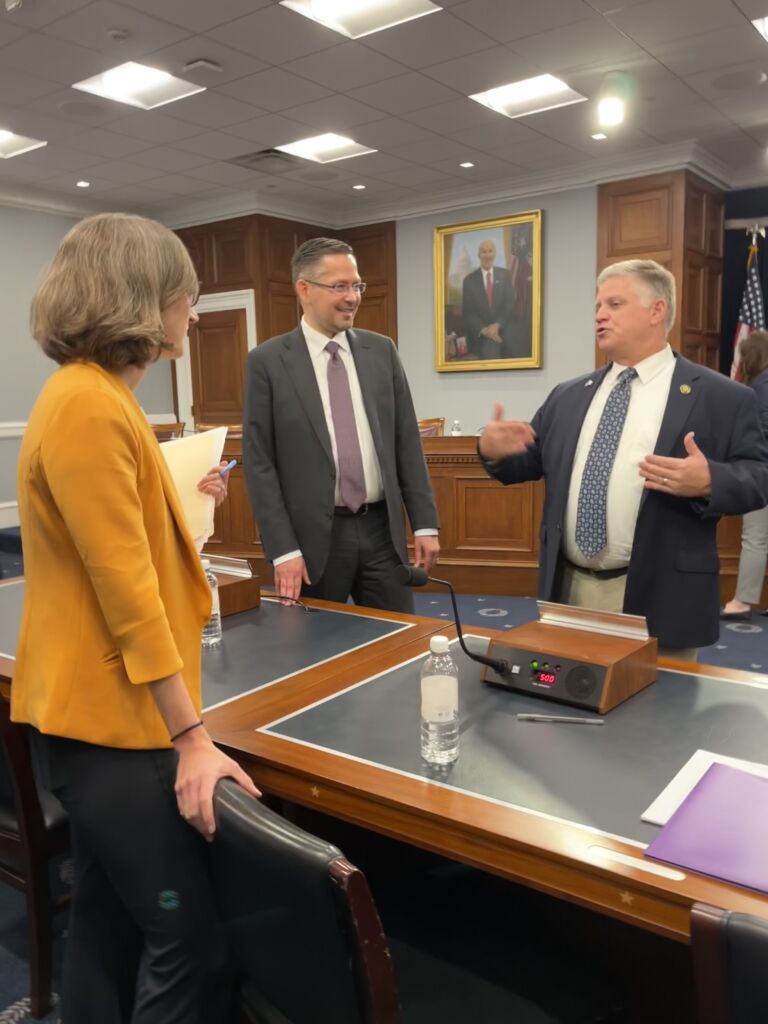
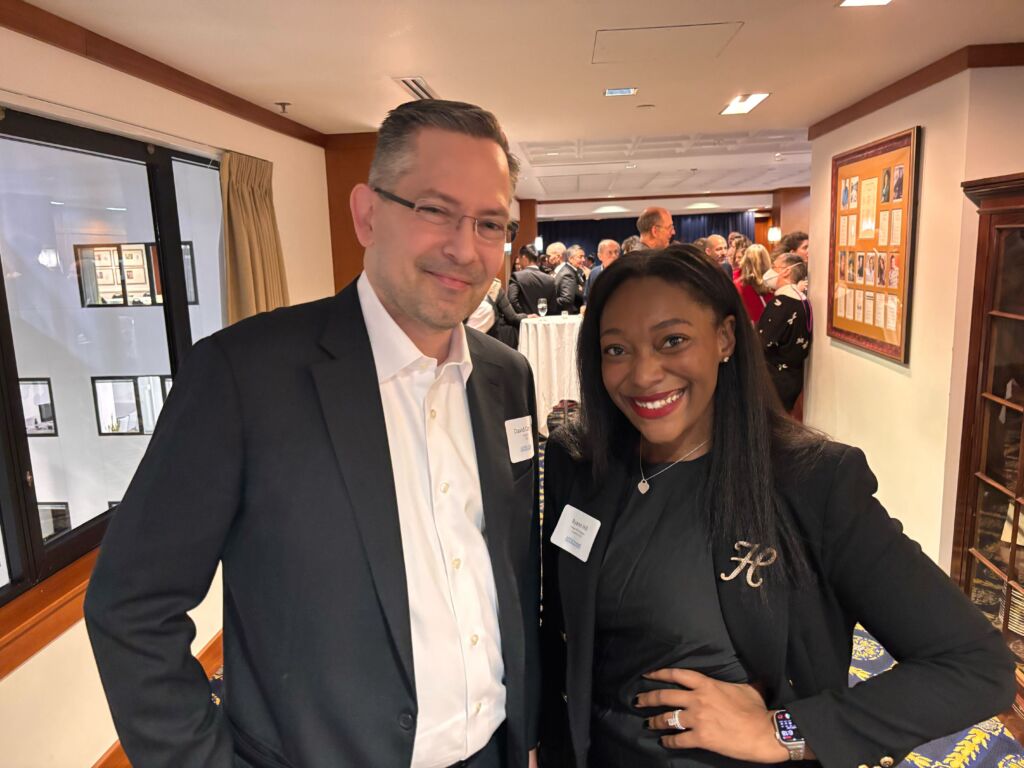
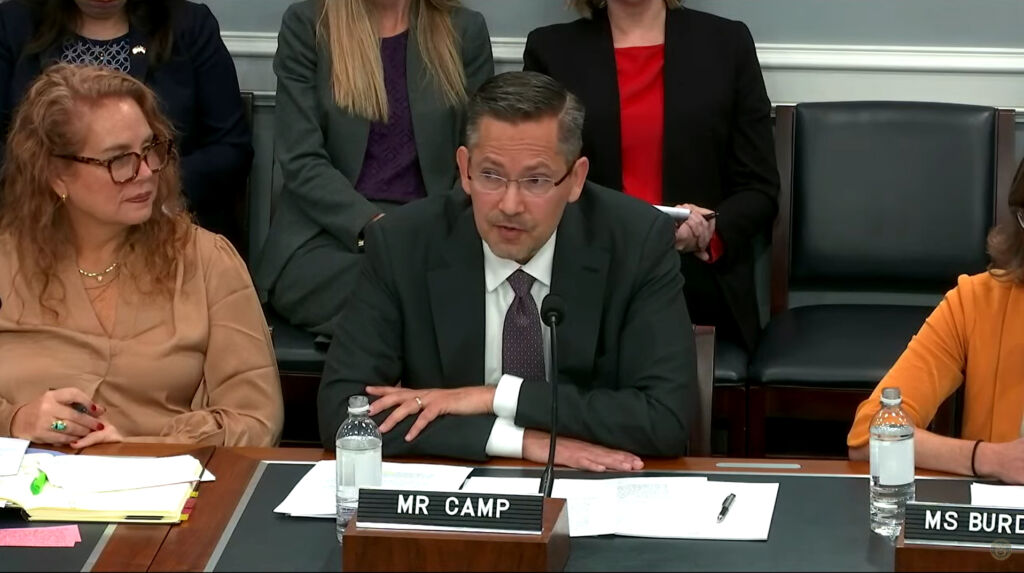
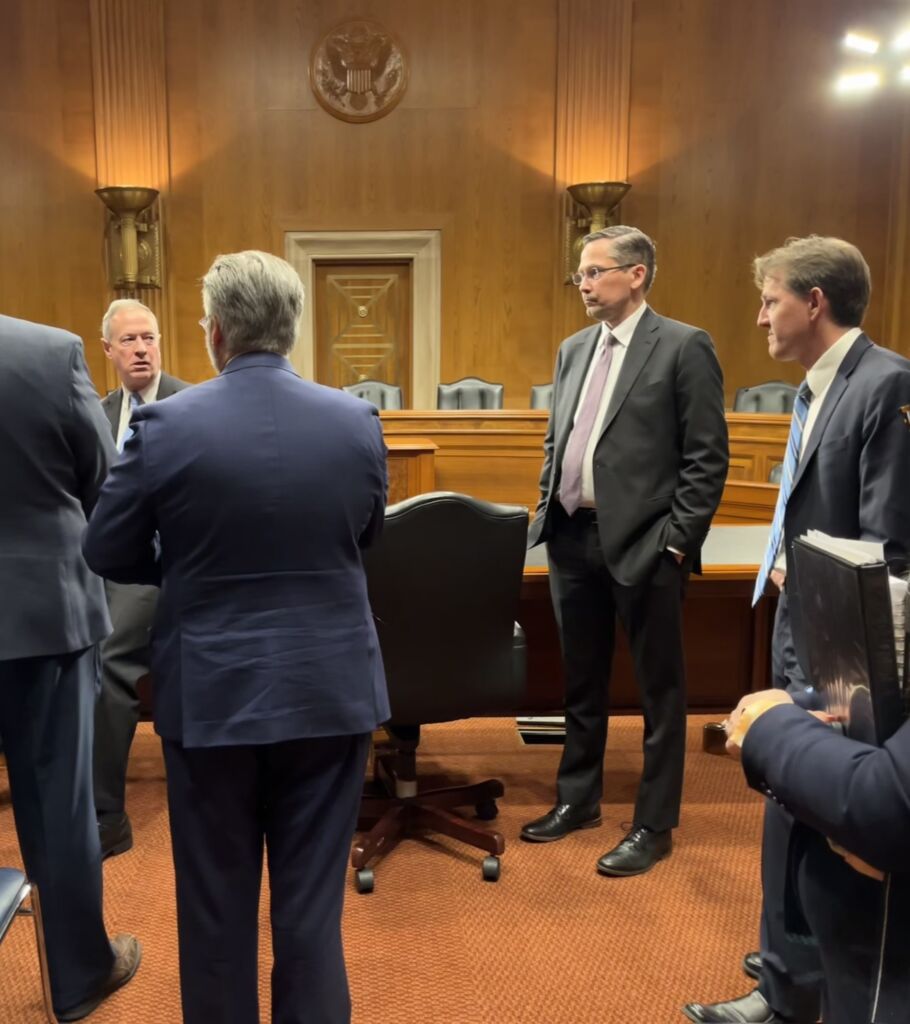
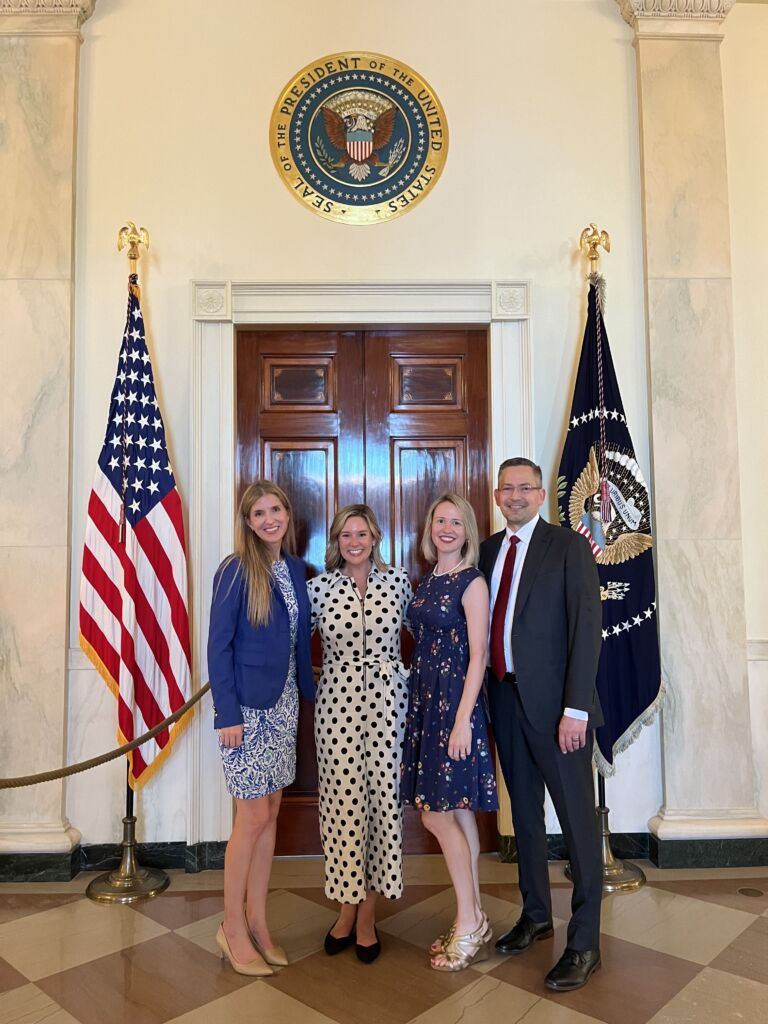
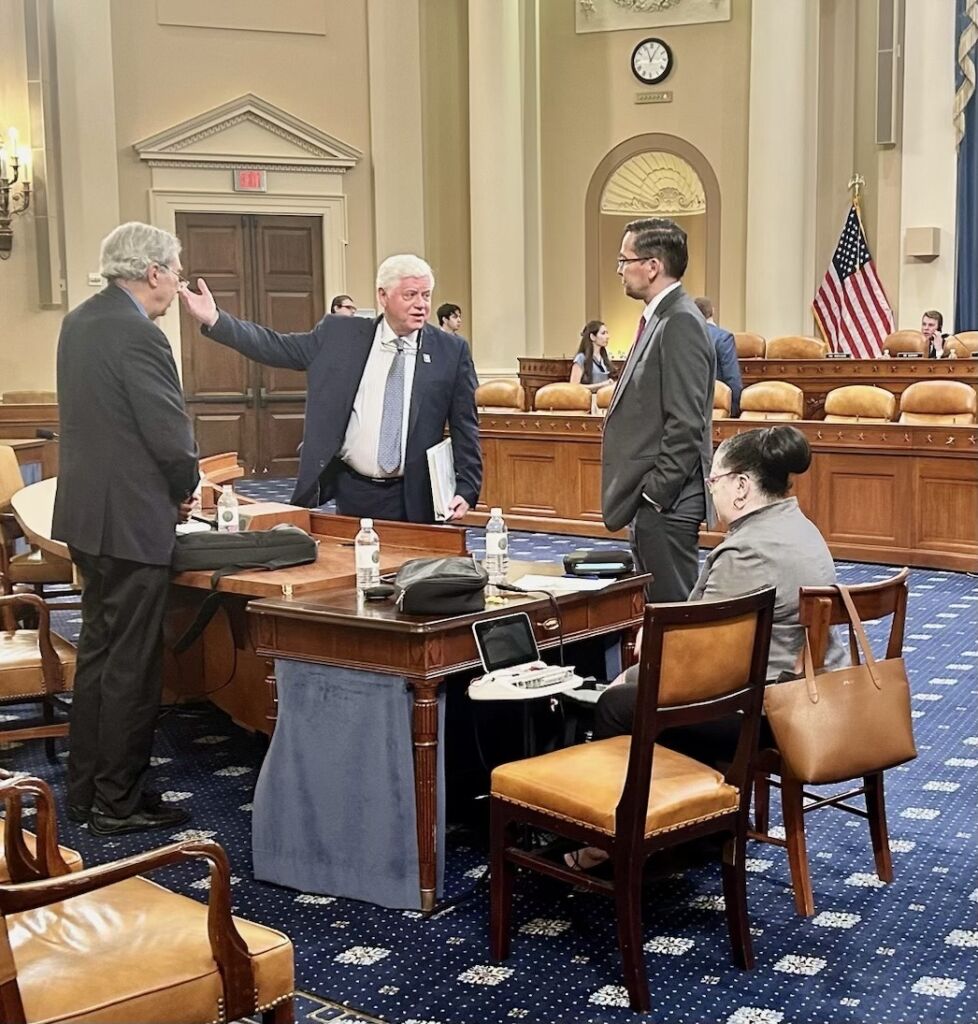
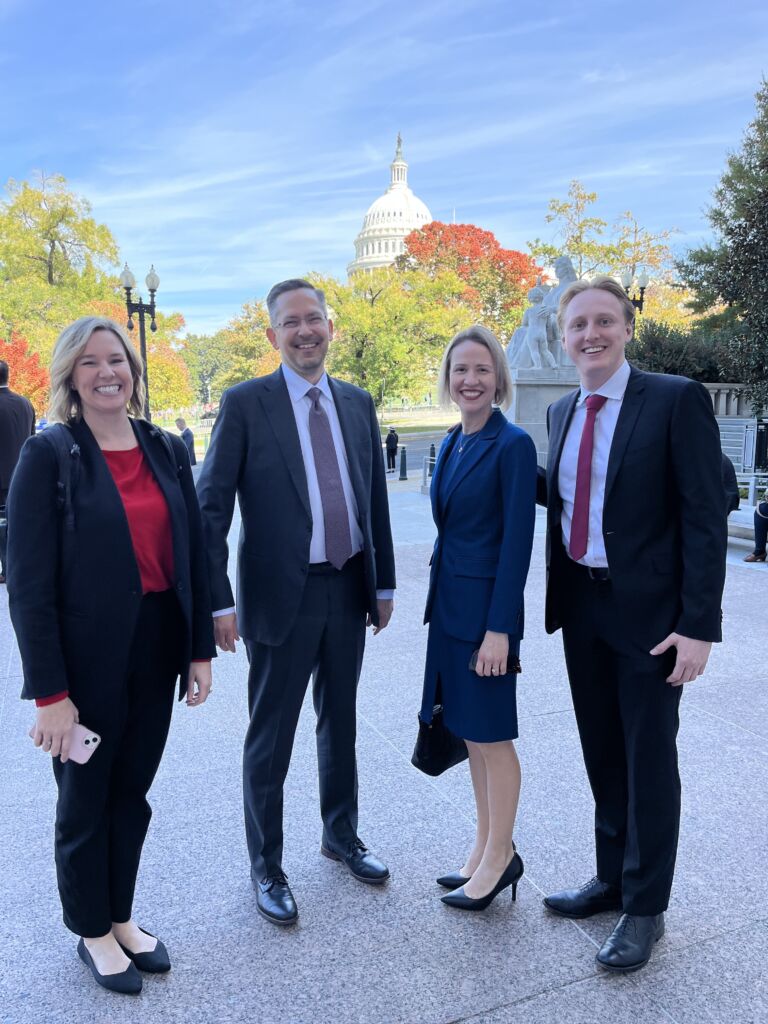
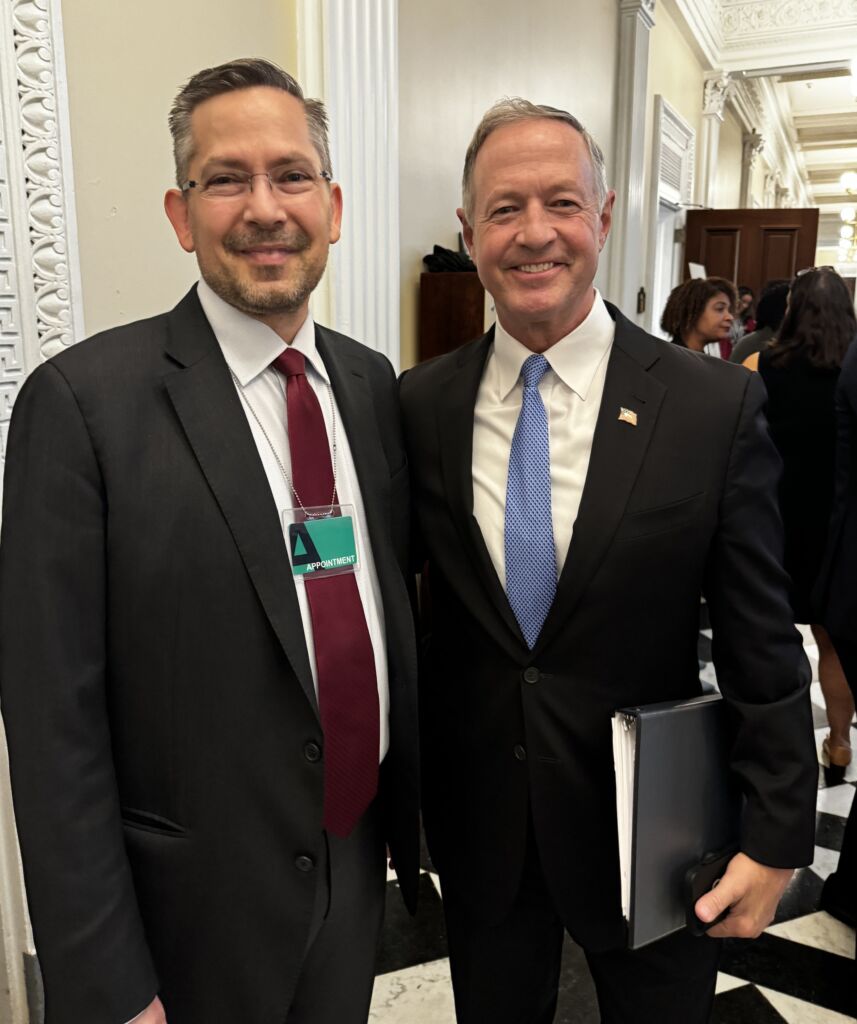
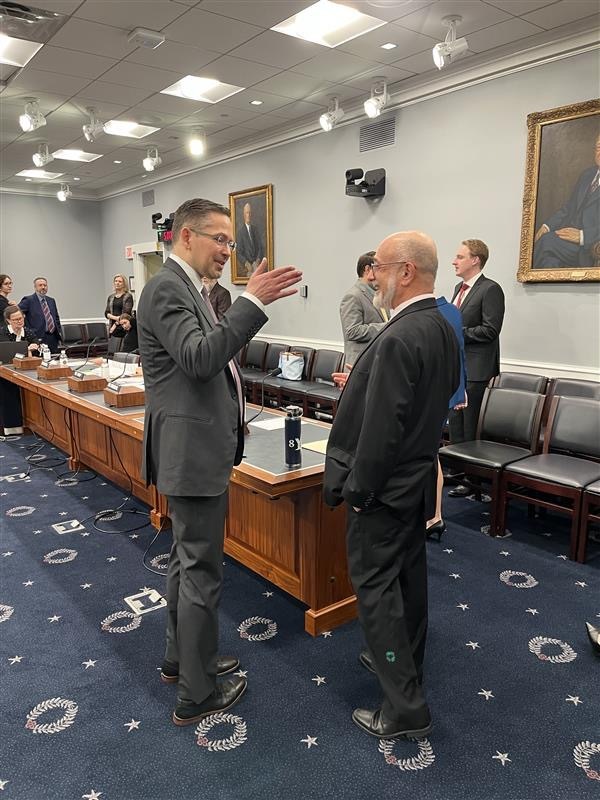
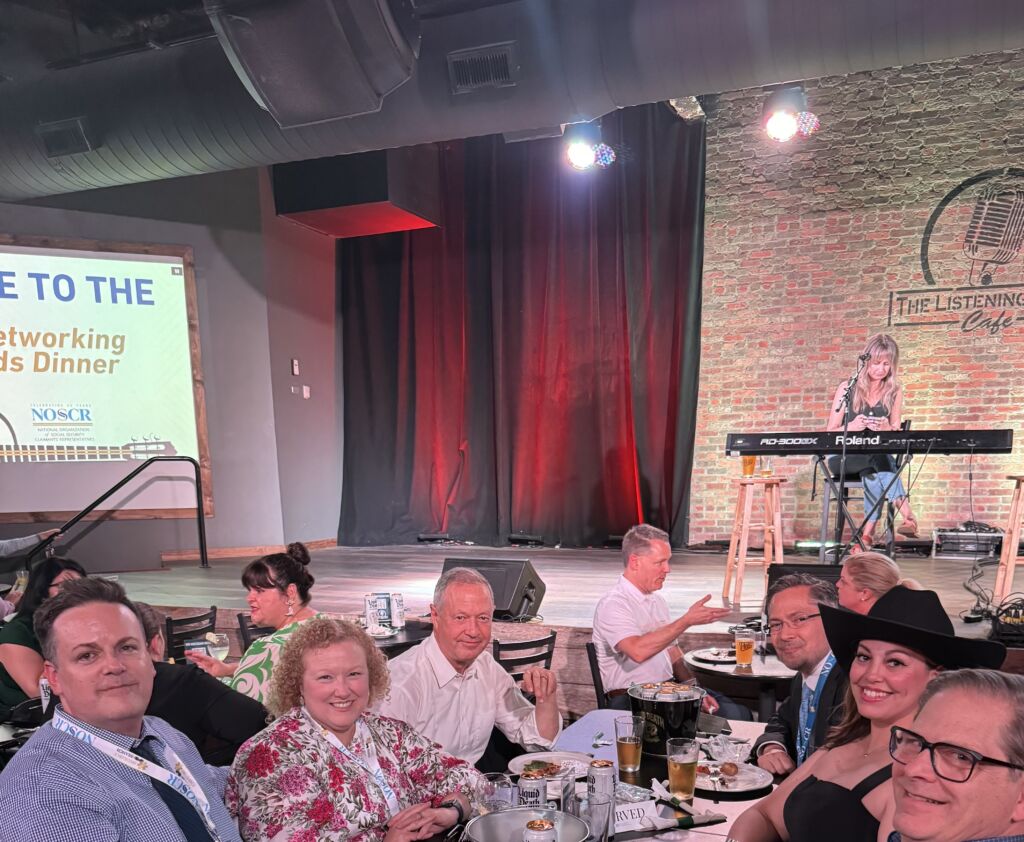
President’s Corner
Rick Fleming, NOSSCR President
As 2024 comes to a close, I want to thank the NOSSCR Board, the NOSSCR staff, and the membership for a very successful year. Our list of accomplishments in 2024 is as impressive as it is extensive. As I pass the baton to President-Elect Paul Burkhalter, NOSSCR is strong. 2024 saw us extremely active on the Hill, in the Agency, in the media, and across the country. Take a look at some 2024 highlights:
- Collateral estoppel
- Overpayment waiver policy ($2,000 admin waiver)
- Overpayment collection policy (10% default SSDI, 60 months)
- SSI installment payment policy (documents not required) (8/29/24)
- SSI expansion of public assistance household to include SNAP (9/30/24)
- SSI exclusion of food from ISM (9/30/24)
- SSI expansion of rental subsidy policy (9/30/24)
- Electronic signatures policy
- Signature removal (first two batches of forms approved)
- Vocational evidence (questionable and obsolete occupations)
- Conn victims’ relief (overpayment waivers and new hearings without “travel back in time”) (7/26/24)
- Ticket to Work policy elevation to Commissioner level
- Ticket to Work marketing
- Initial and reconsideration claim data in ARS/ERE (1696 confirmation, decisions, status)
- Entities recognized for fee payments
- Hearing format flexibility retained
- Aged SSI fees released
- SSI underpayment review $5,000 to $15,000
- 15 to 5 PRW
- Fee Petition ALJ authority cap increase
- Online SSI application (Phase 1) (12/18/24)
- Fee Agreement cap increase
- Fee Agreement cap tied to annual COLA
Have you received your first fee payment north of $9,000? I hope you have, and when you did, I hope you realized that it is the result of extensive efforts made possible by you being a part of an organization focused on improving the practice. Please see a summary of NOSSCR’s Advocacy Values and Goals here and our Priorities here.
There remains a lot to do, so keep an eye on NOSSCR in 2025 as we continue to work for you and your claimants. Your continued membership in NOSSCR and the NOSSCR PAC will continue to pay dividends. There is strength in our numbers, and together we will continue to accomplish great things.
On behalf of the Board of Directors I wish you and yours a very peaceful holiday season. The work you do changes lives for the better. I hope you get some time to relax, recharge, and prepare for the work ahead. And finally, I hope to see all of you in DC either in person or virtually in April. Registration is now open.
Contributions to the National Organization of Social Security Claimants’ Representatives PAC (NOSSCR PAC) are not tax-deductible as a charitable contribution for federal income tax purposes. Contributions to NOSSCR PAC will be used to support federal and state candidates, political parties, and other political committees. Contributions are strictly voluntary. You may refuse to contribute without reprisal. Any proposed contribution level is merely a suggestion, and you are free to contribute more or less than suggested. You will not benefit or be disadvantaged by reason of the amount of your contribution or a decision not to contribute. Federal law requires NOSSCR PAC to use its best efforts to collect and report the name, mailing address, occupation and employer of persons whose contributions exceed $200 in a calendar year. You must be a U.S. citizen or lawfully admitted for permanent residence in the U.S. to contribute.
Legislative Spotlight
Betsy Rosecan, NOSSCR Government Relations Director
Proving that anything can happen in a lame duck session of Congress, Sen. Chuck Schumer (D-NY) announced last week that the Senate would hold a vote on H.R. 82, the Social Security Fairness Act, before the end of the year.
H.R. 82 seeks to eliminate the government pension offset (GPO) and windfall elimination provision (WEP), which reduce Social Security benefits for those who receive other pensions from state or local governments.
November’s “Legislative Spotlight” described the unorthodox way H.R. 82 was passed in the House. After passing in that chamber by a vote of 327 to 75, the bill was sent to the Senate, where its future was uncertain. However, after Schumer’s announcement that a vote would be held on the legislation, the Senate cleared a key procedural hurdle on December 18, 2024. The Senate voted 73 to 27 to invoke cloture on the bill, thereby limiting debate on the measure. On Thursday, December 19, 2024, the Senate voted 73 to 23 on a motion to proceed that would allow for a vote on final passage of the bill. As of the time of publication, the vote on final passage had not occurred.
If the Senate passes the bill, it will be sent to the White House for the President’s signature and then become law.
Bill Details
SECTION 1. Short title.
This Act may be cited as the “Social Security Fairness Act of 2023”.
SEC. 2. Repeal of government pension offset provision.
(a) In general.—Section 202(k) of the Social Security Act (42 U.S.C. 402(k)) is amended by striking paragraph (5).
(b) Conforming amendments.—
(1) Section 202(b)(2) of the Social Security Act (42 U.S.C. 402(b)(2)) is amended by striking “subsections (k)(5) and (q)” and inserting “subsection (q)”.
(2) Section 202(c)(2) of such Act (42 U.S.C. 402(c)(2)) is amended by striking “subsections (k)(5) and (q)” and inserting “subsection (q)”.
(3) Section 202(e)(2)(A) of such Act (42 U.S.C. 402(e)(2)(A)) is amended by striking “subsection (k)(5), subsection (q),” and inserting “subsection (q)”.
(4) Section 202(f)(2)(A) of such Act (42 U.S.C. 402(f)(2)(A)) is amended by striking “subsection (k)(5), subsection (q)” and inserting “subsection (q)”.
SEC. 3. Repeal of windfall elimination provisions.
(a) In general.—Section 215 of the Social Security Act (42 U.S.C. 415) is amended—
(1) in subsection (a), by striking paragraph (7);
(2) in subsection (d), by striking paragraph (3); and
(3) in subsection (f), by striking paragraph (9).
(b) Conforming amendments.—Subsections (e)(2) and (f)(2) of section 202 of such Act (42 U.S.C. 402) are each amended by striking “section 215(f)(5), 215(f)(6), or 215(f)(9)(B)” in subparagraphs (C) and (D)(i) and inserting “paragraph (5) or (6) of section 215(f)”.
SEC. 4. Effective date.
The amendments made by this Act shall apply with respect to monthly insurance benefits payable under title II of the Social Security Act for months after December 2023. Notwithstanding section 215(f) of the Social Security Act, the Commissioner of Social Security shall adjust primary insurance amounts to the extent necessary to take into account the amendments made by section 3.
Passed the House of Representatives November 12, 2024.
Register Now! NOSSCR’s 2025 Spring National Conference in Washington, D.C.!
Join us April 23-26, 2025, at the Grand Hyatt Washington for an event packed with invaluable opportunities to enhance your skills, expand your professional network, and advocate for meaningful change.
Here’s what you can look forward to:
Expand Your Expertise
Participate in a wide range of continuing education sessions, covering the latest developments in Social Security disability law, policy, and practice. Gain insights and strategies to better serve your clients and advance your practice.
Network with Peers
Connect with fellow advocates from across the country. Share best practices, discuss challenges, and build relationships that will last beyond the conference.
Advocate on Capitol Hill
Be part of a full day dedicated to advocacy on Capitol Hill. Join NOSSCR in making your voice heard on critical issues that impact the Social Security disability community.
Virtual Attendance Option Available
Can’t make it to D.C.? We’ve got you covered with a fully virtual option. Participate in sessions and earn continuing education credits from the comfort of your home or office.
Important Note:
In-person attendance is capped at 750 participants due to venue capacity. Secure your spot early to ensure you can join us in Washington, D.C. Once we reach capacity, only virtual registration will be available.
Conference Details:
- Dates: April 23-26, 2025
- Location: Grand Hyatt Washington, 1000 H Street NW, Washington, D.C.
Don’t miss this unique opportunity to learn, connect, and advocate. Register today and be part of a conference that empowers and inspires!
Piemonte’s Perspective
George Piemonte, NOSSCR 11th Circuit Board Representative
By now, everyone is aware that SSA has issued SSR 24-3p. I am going to share some of my preliminary thoughts. This is not surprising, given that SSA’s response when they continually lose on an issue in court is to change the rules. (See the demise of the treating physician rule, considering VA ratings, etc.) SSR 24-3p is SSA’s attempt to impose issue exhaustion on vocational issues at the hearing level.
SSA is putting you on notice to do what I have been saying to you for years—DO YOUR JOB. You are going to have to cross-examine vocational witnesses at the hearing. But the ruling implicitly tells ALJs to stop any questioning that is more than superficial. So, how do you handle vocational testimony when the Ruling takes effect in January?
You need to learn about vocational issues. You need to know more about vocational issues than the alleged “expert.” The Ruling opens the door for using the Occupational Requirements Survey and the O*Net (I contend that has always been the case. See 20 CFR § 404.1566(d)), so learn how to use them. Be ready to pull them up during the hearing.
You must cross-examine. SSR 24-3p is essentially designed to shut down post-hearing evidence and argument. That is at odds with 5 U.S.C. § 556(d), SSR 96-9p, the Supreme Court, and SSA’s brief in Biestek v. Berryhill. All of this will play out in the courts. So, for now, if you don’t cross-examine, you have essentially waived any challenges to vocational testimony and have done your client a disservice. They didn’t hire you not to cross-examine the vocational witness; they can do that themselves.
If the ALJ tries to shut down your cross, cite HALLEX I-2-6-74(C), which states you have the right to fully question the VE on any pertinent matter within the VE’s area of expertise. If the ALJ still does not let you proceed, note your exception on the record that the ALJ is not allowing you to conduct cross-examination as required for a full and true disclosure of the facts.
Some ALJs will try to intimidate and/or bully you. You must stand up to them respectfully and professionally. Even if the ALJ ultimately does not let you conduct a meaningful cross-examination, there is a very good chance the court will not take kindly to that and remand your case.
You will have to cross-examine vocational witnesses at the hearing. If you are not willing to do that, please do not take Social Security Disability cases; refer them to someone who will. Your client is depending on you to zealously represent them, and you have an ethical obligation to do so.
Mark your calendars for January 14 at 3 pm Eastern for a virtual deep-dive into SSR 24-3p. Registration will open soon!
This is a guest column. The views expressed in this column are the views of the author alone, and do not represent the views of NOSSCR, NOSSCR’s leadership, or NOSSCR’s staff.
Expanded Representative Call Center
At the urging of NOSSCR, SSA has increased and streamlined their communication capacity with the representative community. Please review their announcement below:
The Social Security Administration is pleased to announce that they have expanded the services the Representative Call Center (RCC) provides to the attorney and non-attorney representative community (ARNARC). The RCC was originally established in Processing Center (PC) 7 to provide the ARNARC with a dedicated phone line to inquire about claimant payment issues and expedite actions whenever possible for cases pending in PC7. With this expansion, the RCC will now assist the ARNARC will cases pending in PCs 1-7.
Representatives can still contact the RCC line at 877-626-6363 and will be directly connected to the PC of jurisdiction based on the claimant’s age and Social Security number range. The Social Security Administration was able to make this change by transitioning the RCC phone platform to the Amazon Web Services Connect platform, which offers advanced automated call routing, IVR, direct transfers, ensuring faster and more efficient services to customers.
The expanded RCC will continue to serve as a single point of contact for the ARNARC, enabling technicians to perform tasks such as issuing notices of award, processing attorney payments, and releasing past-due benefits during calls. Technicians gather the necessary information to process payments for mutual clients or provide details about payments due to ARNARC for services rendered. Calls requiring further development are documented and dispatched to the appropriate processing divisions. To ensure security, technicians authenticate all calls by reviewing SSA-1696 and SSA-3288 forms and verifying responses to at least seven identifying questions.
The RCC’s streamlined approach enhances efficiency, strengthens communication with the representative community, and ensures timely resolution of claimant and payment-related inquiries.
The agency also shared with NOSSCR the following answers to our questions about local office communications:
- Our Office of Public Service and Operations Support will send a reminder email to the regions that the purpose of the RCC is to give representatives a more direct link for PC related issues.
- We have not directed our local offices to refer any and all requests for case status/decision status to the RCC; therefore, our local offices will continue to provide status requests to attorney offices.
- We do not have a limit on the number of claimant inquiries per call.
We know that connecting with a staff member at the agency who can provide you with meaningful updates about your cases is a crucial yet time-consuming part of your practice. It is our hope that these improvements will lessen the time you wait on hold and will improve your access to needed information.
Jennifer Cronenberg Elected Co-Chair of Consortium for Constituents with Disabilities’ Social Security Task Force
NOSSCR is thrilled to announce that on December 18, 2024, Jennifer Cronenberg, Senior Counsel and Director of Legal Information, was elected Co-Chair of the Consortium for Constituents with Disabilities’ (CCD) Social Security Task Force.
The CCD is a coalition of national disability organizations working together to advocate for the rights of individuals with disabilities. The CCD’s mission is to ensure that people with disabilities have full access to the services, programs, and opportunities they need to live independent and productive lives.
This position recognizes Jennifer’s expertise and unwavering dedication to advocating for the rights of individuals with disabilities. With over 14 years of experience representing Social Security disability claimants, Jennifer brings a wealth of knowledge and a proven track record of success to this leadership role. Her deep understanding of Social Security law and policy, combined with her passion for ensuring access to vital benefits, makes her an ideal choice to help guide the Task Force’s efforts.
As Co-Chair of the CCD Social Security Task Force, Jennifer will play a key role in working with policymakers and stakeholders to advocate for improvements to Social Security disability programs, fighting to preserve and strengthen SSDI and SSI programs, identifying and addressing barriers that prevent individuals with disabilities from accessing the benefits they need, and raising awareness about Social Security disability issues and promoting a better understanding of the challenges faced by individuals with disabilities.
Jennifer’s commitment to justice and her tireless advocacy have made a significant impact on the lives of countless individuals with disabilities. In her new role as Co-Chair, she will continue to be a powerful voice for those who rely on Social Security disability benefits.
Virtual Conference Recap – Replays Available Now!
Thank you to everyone who joined us last week for our Virtual Conference! We had two jam-packed days of learning and are grateful to all of our esteemed speakers and to our members for participating and asking engaging questions. If you attended the virtual conference and want to revisit any of the sessions, replays are now available in your NOSSCR Learning Center.
Weren’t able to join us last week but want to see what all the buzz was about? Well now you can! The sessions have been added to our On-Demand Continuing Education Store and we welcome you to peruse the options at your leisure. These courses are designed to help you stay informed, enhance your practice, and meet your professional development goals at your own pace.
Whether you’re diving into the newest content or catching up on past sessions, our library has something for everyone. Start learning today and take your expertise to the next level!
NOSSCR Helps Provide Relief to Those Impacted by Hurricane Helene
Shortly after hurricane Helene struck western North Carolina, Commissioner O’Malley reached out to legal advocates in North Carolina to facilitate a meeting between NOSSCR President Rick Fleming, advocates from Legal Aid of North Carolina and Pisgah Legal Services, and Social Security Administration leadership to receive feedback and support on addressing the needs of impacted Social Security claimants and beneficiaries. Rick, Brian Hogan of Legal Aid of North Carolina (a NOSSCR nonprofit member), and legal services advocates met with Rose Mary Buehler, Regional Commissioner and Patti Patterson, Regional Communications Director in the Atlanta Region to offer feedback and discuss flexibilities for beneficiaries in the impacted areas.
NOSSCR Board Member, Ashley Sappenfield, also advocated directly to the Commissioner’s Office during our November 2024 monthly meeting in Woodlawn to express the urgent needs of our impacted neighbors, friends, and colleagues in Western North Carolina. We are pleased to report that the Social Security Administration responded favorably to our conversations. Some specific results are as follows:
- Guidance issued on disaster relief assistance to ensure the assistance is not counted as income or resources for SSI.
- Guidance issued to identify underpayments for the affected areas with the goal of streamlining payment to the beneficiaries.
- Guidance issued to apply maximum flexibility when deciding whether to extend good cause provisions related to the submission of evidence, appeals, hearings, redeterminations, and continuing disability reviews.
- Guidance issued to exercise caution and remain flexible while processing workloads that may cause an adverse action, including the processing of overpayment waivers and personal conferences.
- Regional Chief ALJ, Michael Rodriguez, and Regional Management Officer, Jennifer Thompson, communicated to the hearing office management teams affected by hurricanes Helene and Milton, wherein they were reminded that policy allows for liberal considerations in the disaster struck areas to include leniency in establishing good cause in cases where an unforeseeable event occurred, delays in receipt of mail in the affected areas, adjusting the manner of appearance if warranted, and ensuring the utilization of HITMER where applicable.
NOSSCR is grateful that SSA worked hand-in-hand with us and with Legal Aid of North Carolina and Pisgah Legal Services to offer meaningful assistance for those affected by Hurricane Helene. The work of aiding impacted claimants and beneficiaries in Western North Carolina and impacted areas is just beginning, and it will be a long road to recovery for this region, but we are happy to see the Agency take these meaningful immediate steps to meet the needs of our mutual clients. Please do not hesitate to reach out to your Circuit Representative if a local issue arises that requires action.
Recent Cases of Interest
Tom Krause, NOSSCR Litigation Director
Once again, I’m providing a snapshot of several recent District and Circuit court cases of interest. Below, I’ve included short summaries of each case, and more detailed explanations are available in the downloadable document at the bottom of the list.
- Alonzo S. v. O’Malley, — F.Supp.3d —, 2024 WL 4818732 (N.D. Ill. Nov. 18, 2024): The District Court for the Northern District of Illinois remanded the case to the Social Security Administration, holding that substantial evidence did not support the RFC determination or the evaluation of medical opinion evidence and that the ALJ violated agency policy.
- Daniela Cailean v. O’Malley, No. 24-596, 2024 WL 4824035 (9th Cir. Nov. 19, 2024): The Ninth Circuit reversed and remanded, holding that the ALJ improperly discounted Cailean’s symptom testimony and rejected medical opinions and third-party function reports.
- Gwendolyn Smith v. O’Malley, No. 23-3220, 2024 WL 4879472 (9th Cir. Nov. 25, 2024): The Ninth Circuit reversed and remanded, holding that the ALJ erred in rejecting Smith’s testimony about the extent of her pain.
- Lori S. v. O’Malley, 727 F.Supp.3d 78 (D. Conn. 2024): The District Court for the District of Connecticut remanded the case, holding that the ALJ improperly formulated his decision based on an incomplete record and insufficient evidence to support the RFC determination.
- Rony R. Romero v. O’Malley, No. 23-55292, 2024 WL 4919515 (9th Cir. Nov. 29, 2024): The Ninth Circuit reversed and remanded, holding that the ALJ failed to provide sufficient reasons for discounting Romero’s subjective symptom testimony, and that substantial evidence did not support the ALJ’s determination regarding state agency consultants’ reports or Dr. Ingram’s medical opinion.
- Kimberly J. v. Comm’r of Soc. Sec., 725 F.Supp.3d 305 (W.D.N.Y.2024): The District Court for the Western District of New York granted Kimberly J.’s motion in part, holding that the ALJ failed to provide a sufficient explanation for the RFC assessment’s limitations on Kimberly J.’s bilateral upper extremities.
- Hahn v. Kijakazi, 725 F.Supp.3d 994 (N.D. Cal. 2024): The District Court for the Northern District of California granted Hahn’s motion and remanded the case, holding that the ALJ erred in rejecting the examining psychologist’s opinion, discounting the claimant’s migraine testimony and rejecting third-party function reports.
- Charles E. v. Comm’r of Soc. Sec., — F.Supp.3d —, 2024 WL 4633422 (W.D.N.Y. Oct. 31, 2024): The District Court for the Western District of New York granted Charles E.’s motion, holding that remand was warranted for further explanation of the RFC limitation about the claimant’s bathroom breaks.
- Karen O. v. Comm’r of Soc. Sec., 731 F.Supp.3d 926 (S.D. Ohio 2024): The District Court for the Southern District of Ohio granted counsel’s motion for attorney fees under 42 U.S.C. § 406(b) in part, holding that the two motions for fees should have been filed as a single motion. In addition, the claimant’s attorney did not file for EAJA fees on the second case; as a result the hypothetical EAJA award reduced the requested § 406(b) fee award.
Download the full length summaries below.
Simplified SSI Application Now Available Online for Some Applicants
This month, Social Security announced that the simplified SSI application is now available online for some adult applicants. Read their press release below and be sure to screen your cases for any that might qualify for use of this helpful tool. We look forward to the continued expansion of online services and hope to see the agency rollout a fully online SSI application for all applicants soon.
Simplified Online SSI Application Now Available as First Step in Larger Effort
December 16, 2024 • By Betsy Beaumon, Chief Transformation Officer
An online application for Supplemental Security Income (SSI) is now available for some adults, making the application process easier. Following up on an announcement earlier this year, the simplified online application is part of the agency’s overall commitment to improving access to our benefits and programs.
SSI provides monthly payments to adults and children with disabilities, as well as people 65 and older, who have little or no income and resources.
The rollout of the streamlined online application is the first phase of a multi-year effort to simplify the disability application process and improve access for those who may be eligible.
In the past, customers could apply online for Social Security Disability Insurance (SSDI) and select only the intent to file for SSI through SSA.gov. Now, we are expanding the online application to actually include a simplified, streamlined version of the initial SSI application.
Based on customer testing, we reduced the questions from 54 to as few as 12 depending on how an applicant responds. Where possible, some answers will be pre-filled based on previous responses.
The enhanced online application is accessible to adults who:
• Are 18-64 years and 10 months and applying for SSI and SSDI.
• Have never been married.
• Have never applied for SSI for themselves or a child.
• Are U.S. citizens or noncitizens (eligibility has not changed)In the future, the agency plans to expand this streamlined application process to all applicants, in the office, via phone, and, later, online.
To begin the application, visit Apply for Supplemental Security Income (SSI).
Please share this information with loved ones, clients, and colleagues who may be interested.
If you are a parent or guardian applying for SSI for a minor child or you are 65 and older with limited income and resources, you can schedule an appointment by calling 1-800-772-1213.
SSA Releases FY2024 IC and RC Allowance Rates
Social Security released their SSDI and SSI disability claims allowance rates for the initial and reconsideration adjudicative levels for fiscal year 2024 broken down by nation, region, and state. Nationwide there was a slight decrease in the initial claim allowance rate when compared to last year (0.3%) and a slight increase in the reconsideration claim allowance rate (0.6%). PDF and Excel versions of the report are available for download below.
Don’t Miss Out! Mark Your Calendars for Upcoming NOSSCR Events!
Want to stay ahead in the world of Social Security disability law? NOSSCR has a packed schedule of both in-person and virtual events to keep you informed and connected.
Virtual Opportunities at Your Fingertips, All Year Long
Are you looking for professional growth in 2025? NOSSCR offers a variety of virtual events throughout the year focused on sharpening your advocacy skills and building your network, including:
- Webinars: Stay up-to-date on the latest legal developments, practice management strategies, and more from the comfort of your home or office through our live and on-demand continuing education webinars.
- Make sure you join us in January for the PAC Washington Webinar and a continuing education session on Ehlers-Danlos Syndrome by Pirt Meyer.
- On January 14 at 3 pm Eastern, we’ll have a three-hour presentation on SSR 24-3p. Meghan Gallo, George Piemonte, and Stephen Sloan will get you up to speed on where and how to find available vocational data, tips to update your examination of vocational witnesses in hearings, and how to set up and argue vocational issues at the Appeals Council and in federal court. Registration will open soon!
- In February, Debora Wagner and Ray Cebula will present “Love Stinks,” a presentation focused on marriage penalties offered at no cost to nonprofit members. Leslie Kline-Capelle, who returned to private practice after 15 years as a Senior Attorney Advisor, will give us a unique view into the OHO decision-making process.
- Virtual Circuit Meetings: Connect with colleagues and NOSSCR leaders in your region to discuss regional issues and trends.
- If you’re in the First, Second, Fourth, DC, Fifth, Ninth, or Eleventh Circuits, your Circuit meeting will be in January or February. Don’t forget to register!
- NextGen Virtual Coffee Breaks: These informal online gatherings are great for newer practitioners to network and share experiences.
- Our NextGen coffee break in January will focus on Low-Risk AI Use Cases for SSD with Nick Coleman, NOSSCR member and Arkansas-based attorney.
Check the NOSSCR events calendar for a complete list of upcoming virtual events and registration details. Subscribe to our calendar to make sure you don’t miss out!
Don’t forget these other exciting events:
- Spring into Action in D.C.: Our Spring 2025 National Conference is just around the corner! Join us in Washington, D.C., from April 23-26, 2025, at the Grand Hyatt Washington. This is your chance to:
- Deepen your knowledge: Attend cutting-edge continuing education sessions presented by leaders in Social Security disability law and policy.
- Network with colleagues: Connect with fellow advocates from across the country, share best practices, and build lasting relationships.
- Make your voice heard: Participate in a powerful advocacy day on Capitol Hill, addressing critical issues impacting the Social Security disability community.
- Registration is now open! Visit the NOSSCR website for details and to secure your spot, in-person or virtually.
- NOSSCR Supreme Court Group Admission: Limited to 50 attendees, this exclusive event on June 18, 2025, offers a unique opportunity to be admitted to the Supreme Court bar with your NOSSCR colleagues. The application will be available on our website in early January. Check out the detailed instructions here.
We hope to see you at an upcoming event!
Krause Chronicles: The 1996 Process Unification Rulings
Tom Krause, NOSSCR Litigation Director
In the mid-1990s, the Social Security Administration (SSA) implemented a groundbreaking initiative known as Process Unification to address inconsistencies in disability claim adjudication. The state Disability Determination Services were not “reading from the same book” as the Administrative Law Judges. The Process Unification initiative culminated in a series of Social Security Rulings (SSRs) in 1996, collectively called the Process Unification Rulings (SSR 96-1p to SSR 96-9p). These rulings transformed how adjudicators develop and decide disability claims, ensuring greater uniformity and transparency across the decision-making process.
The Context: Litigation and Reform
The Process Unification Rulings emerged from class-action lawsuits filed across various states, where plaintiffs alleged significant discrepancies between standards used by State Disability Determination Services (DDSs) and Administrative Law Judges (ALJs). Cases such as Samuels (TN),[1] Day (OH),[2] Bentley (FL),[3] Sorenson (OR),[4] Laird (IA)[5] and others highlighted a perception of stricter standards at the DDS level than ALJs. These lawsuits, bolstered by the Supreme Court’s decision in Bowen v. City of New York, led to judicial findings and settlements that mandated reform.
The Rulings: Key Highlights
The 1996 rulings clarified SSA’s policies and set standards for adjudicators at all levels. Key elements include:
- Credibility Assessments (SSR 96-7p): Adjudicators must clearly articulate their rationale for finding a claimant credible or not credible when evaluating symptoms such as pain.
- Treating Source Opinions (SSR 96-2p): Detailed the conditions under which treating source opinions should be given controlling weight, emphasizing the need for consistency with other substantial evidence.
- Residual Functional Capacity (RFC) Assessments (SSR 96-8p): Established guidelines for documenting and supporting RFC assessments with specific evidence from the record.
- Symptoms and Impairments (SSR 96-4p): Reiterated the requirement for medically determinable impairments for disability findings.
Impact and Legacy
The Process Unification Rulings provided a framework to address adjudicatory inconsistencies, ensuring that DDS personnel, ALJs, and the Appeals Council operate under shared standards. These rulings enhanced transparency in decision-making and provided claimants with more straightforward explanations of how evidence was evaluated. Despite their initial effectiveness, several SSRs have been rescinded or superseded by newer guidance, reflecting ongoing changes in SSA policy.
What Attorneys Should Know
Understanding the principles established by the 1996 rulings remains critical for attorneys advocating in Social Security disability cases. While some rulings have been updated, their foundational concepts of transparency, consistency, and evidence-based decision-making influence SSA policies today.
By leveraging these rulings, attorneys can better navigate the adjudicatory process and advocate for fair outcomes for their clients.
[1] Samuels v. Heckler, 668 F. Supp. 656 (W.D. Tenn. 1986).
[2] Day v. Shalala, 23 F.3d 1052 (6th Cir. 1994).
[3] Bentley v. Sellars, No. 92-40-Civ-J-20 (M.D. Fla. Aug. 24, 1995).
[4] Sorenson v. Concannon, 893 F.Supp. 1469, 1477 (D. Ore. 1994).
[5] Laird v. Stilwill, 982 F. Supp. 1345, 1350 (N.D. Iowa 1997).
SSAB Releases Paper on SSI and Incarceration
This week, the Social Security Advisory Board issued a report on SSI and incarceration, which they describe as follows:
Supplemental Security Income (SSI) is not payable when someone is incarcerated for a full calendar month. People whose SSI was suspended or terminated during incarceration, as well as people who have not received SSI before, may apply for benefits shortly before or after release. Obtaining replacement Social Security cards may also be important for many people who are leaving incarceration.
The Board’s report describes Social Security Administration (SSA) policies and procedures regarding SSI and incarceration. It makes several recommendations to SSA to improve the process and outcomes for people leaving incarceration, SSA staff, and employees of correctional facilities. The Board also recommends two legislative changes: incentive payments to correctional facilities that report the release of people who received SSI before incarceration, and indefinite suspension of SSI rather than terminating benefits and requiring new applications.
You can access the report here or read and download it below.
Representative Rates for FY2024
The agency has updated their chart to include representative rates for FY2024. This year saw a representation increase of 8% at the hearing level. NOSSCR knows that our members’ willingness to take on difficult cases has helped claimants connect with much needed representation. We encourage all of you to continue to assist claimants at all claim levels — and if you need assistance or support, please don’t hesitate to reach out to NOSSCR!
PAC Contributor List
THANK YOU TO OUR NOSSCR PAC CONTRIBUTORS
As of December 2024
| First Circuit Ronald Belluso (CC) Mariam Lavoie (CC) Riley Fenner (CC) David Ferrari (C) Susan Smith Webb (CC) Second Circuit Peter Antonowicz (CC) Peter Gorton (CC) Maurice Maitland (CC) Sharmine Persaud (CC) Katrina Tomer (CC) Third Circuit Kate Albert (CC) Marianne Brown (CC) Michael Brown (CC) Maryjean Ellis (CC) Gregg Hobbie (CC) Alicia Hutchiinson (CC) Adrienne Jarvis (CC) Jess Levanthal (CC) Kevin Liebkemann (CC) Sheryl Mazur (CC) Timothy Mello (CC) Judson Perry (CC) Robert Petruzzelli (DC) Alan Polonsky (PC) Fourth Circuit Russell Bowling (CC) Leah Broker (CC) Christine Burnside (CC) Timothy Clardy (CC) Vaughn Clauson (CC) Linda Cosme (CC) Geraldine Delambo (CC) Rick Fleming (DC) Eric Goodale (DC) Todd Johnson (CC) Martin Keane (CC) Christine Latona (C) Nowell Lesser (CC) Liz Lunn (CC) Nicholas Parr (CC) George Piemonte (CAP) Ashley Hartman Sappenfield (CC) Joanna Suyes (CC) Stacy Thompson (DC) Laura Beth Waller (DC) Robertson Wendt (DC) |
| Fifth Circuit Paul Burkhalter (CC) Angela Davis Morris (CC) Thomas Fischer (CC) John Heard (CAP) Jonathan Heeps (CC) Michel Hengst (CC) Ronald Honig (CC) Jacob Hugentobler (CC) Gerard Lynch (CC) Patrick O’Neal (CC) David Pogue (CC) Alex Rankin (CC) David Lance White (C) Sixth Circuit Mark Aiello (CC) Mary (Beth) Bates (CC) Clifford Farrell (DC) Jennifer Harris (CC) Robert MacDonald (CC) John Nicholson (CC) Debra Shifrin (CAP) Donna Simpson (CC) James Roy Williams (CC) Seventh Circuit Marin Carrow (CC) Eric Farr (C) Richard Feingold (CC) Justin Kosiba (CC) Randall Manus (CC) Meredith Marcus (C) Cody Marvin (DC) Katherine Miller (CC) Jeremy Pollen (C) Avram Sacks (CC) James Schiff (C) Thomas Scully (CC) Stephen Sloan (CC) Thomas Thompson (CC) Audrey VanGilder (CC) Eighth Circuit Karen Bill (CC) Jeffrey Bunton (CC) Julie Burkett (CC) David Camp (CAP) Patrick Cavanaugh (DC) Timothy Cuddigan (DC) Terrell Dempsey (CC) Vicki Dempsey (CC) Meghan Gallo (CC) Thomas Krause (PC) Theodore Norwood (DC) J. Asha Sharma (CC) Geramya Smith (C) Frederick Spencer (CAP) Tim Tripp (CC) Frank Williams (CC) |
CAP=Capitol Club, $5,000/monthly contribution of $416
PC=Platinum Club, $2,500-$4,999/ monthly contribution of $208-415
DC=Diamond Club, $1,000-$2,499/monthly contribution of $83-207
CC=Century Club, $100-$999
C=Contributor, all other contributions
| Ninth Circuit Sima Aghai (CC) Mark Bunch (CC) Maren Bam (DC) Mark Caldwell (CC) Paul Clark (CC) Brian Clymer (CC) Mary Fowler (CC) Marc Kalagian (DC) Alise Kellman (DC) Kevin Kerr (DC) Mark Manning (CC) Meghan McNamara Miller (CC) Eric Penar (CC) Maggie Schott (CC) Eric Slepian (CC) David Shore (CC) Timothy Walker-Dupler (CC) Steve Weiss (CC) Jennifer Zorilla (CC) Tenth Circuit Ann Atkinson (DC) Jay Barnes (CC) Steven Earl (CC) Thomas Feldman (CC) John Harlan (DC) Gary Jones (CC) Erin Stackenwalt (CC) Steve Troutman (CC) Gayle Troutman (CC) William Viner (CC) Eleventh Circuit Pamela Atkins (CC) Carol Avard-Hicks (CC) Richard Culbertson (CC) Shelley Davidson (CC) Heather Freeman (DC) Kevin Hall (CC) Marylin Hamilton (C) Kathleen Flynn (CC) Doug Mahoney (CC) Deborah Mitchell (CC) Krysti Monaco (CC) Ellen Moyle (C) Marjorie Schmoyer (DC) Sarah White Park (CC) David Wright (DC) |
Contributions to the National Organization of Social Security Claimants’ Representatives PAC (NOSSCR PAC) are not tax-deductible as a charitable contribution for federal income tax purposes. Contributions to NOSSCR PAC will be used to support federal and state candidates, political parties, and other political committees. Contributions are strictly voluntary. You may refuse to contribute without reprisal. Any proposed contribution level is merely a suggestion, and you are free to contribute more or less than suggested. You will not benefit or be disadvantaged by reason of the amount of your contribution or a decision not to contribute. Federal law requires NOSSCR PAC to use its best efforts to collect and report the name, mailing address, occupation and employer of persons whose contributions exceed $200 in a calendar year. You must be a U.S. citizen or lawfully admitted for permanent residence in the U.S. to contribute.
NOSSCR Comments on SSA’s Policies for Foster Care Beneficiaries
SSA published a Request for Information in the Federal Register titled “Use and Conservation of Social Security Benefits and Supplemental Security Income (SSI) Payments That Representative Payees Receive for Beneficiaries Residing in Foster Care.” This request sought “public input to inform how Federal agencies can support broader State and local efforts to improve the outcomes of children in the child welfare system who are eligible for Federal benefits.” NOSSCR, along with several of our allies, submitted official comments, linked below. We will keep you posted on any future action that the agency takes regarding foster care.
Daily Dose of Data from SSA
Annual Statistical Supplement, 2024: “The Supplement includes more than 200 tables that provide comprehensive statistics on Social Security and Supplemental Security Income. The tables cover program details such as the number of beneficiaries, amounts of benefits, and the status of the trust funds. Narrative sections describe the programs’ legislative history and program rules.”
Monthly Statistical Snapshot, November 2024: “A monthly snapshot of statistics on Social Security beneficiaries and Supplemental Security Income recipients.”
SSI Monthly Statistics, November 2024: “These monthly tables provide statistics for federally administered payments and awards under the Supplemental Security Income (SSI) program.”
OASDI Beneficiaries by State and ZIP Code, 2022 (released December 2024): “An annual publication focusing on the Social Security beneficiary population at the ZIP Code level in tables showing the number and type of beneficiaries and the amount of benefits paid in each state, Social Security Administration field office, and ZIP Code. It also shows the number of beneficiaries aged 65 or older.”
Mortality by Career-Average Earnings Level, December 2024, Actuarial Study No. 129.
The Role of Continuing Disability Reviews in Child Supplemental Security Income Program Participation Patterns, by Jeffrey Hemmeter, Michael Levere, David C. Wittenburg. “This article examines how child Supplemental Security Income (SSI) participation is affected over time by variation in the frequency with which the Social Security Administration conducts medical continuing disability reviews (CDRs). The authors use administrative data to explore whether the characteristics of children who underwent a CDR varied over time and to track the numbers of those whose payments were ceased because of a CDR and who later returned to SSI. They also conduct a policy simulation to estimate how the child SSI caseload might have differed with more consistent annual CDR volumes. The authors find that the characteristics of child SSI recipients are not greatly affected by CDR volumes, few children return to SSI following a CDR cessation, and varying CDR frequencies can explain the majority of child SSI caseload changes in recent years.”
The Effects of the Workforce Innovation and Opportunity Act of 2014 on Vocational Rehabilitation Engagement, Employment, and Work Incentive Use Among Supplemental Security Income Recipients Aged 14–24, by Isabel Musse, Todd Honeycutt, Jeffrey Hemmeter. “The Workforce Innovation and Opportunity Act (WIOA) of 2014 requires state vocational rehabilitation (VR) agencies to offer preemployment transition services (pre-ETS) to students with disabilities. Using data for 2010–2021 from the Social Security Administration and the Department of Education’s Rehabilitation Services Administration, the authors show that youths aged 14–24 with disabilities who receive Supplemental Security Income payments were more likely to apply for VR services, sign individualized plans for employment, and have higher annual earnings after WIOA enactment than before. The access to pre-ETS that WIOA provided likely contributed to higher youth engagement with VR and may be associated with better employment outcomes.”
Preliminary Estimates of the Number of U.S. Workers Using a New Methodology for Assigning Geographic and Demographic Information in Administrative Data Records: Research and Statistics Note No. 2024-02, by Michael Compson. “The Office of Research, Evaluation, and Statistics (ORES) in the Social Security Administration (SSA) is developing a new process to generate estimates of the employment and earnings of U.S. workers with taxable Social Security and Medicare earnings that appear in two annual statistical publications. The new methodology will enable ORES to identify demographic information and state of residence for a vastly expanded sample of workers, which would permit the inclusion of numerous county-level estimates that currently must be suppressed in the published tables. This note compares preliminary estimates of worker counts by sex, age, and type of earnings (wage and salary, self-employment) using the new methodology against benchmark worker count estimates from SSA’s Office of the Chief Actuary and from selected tables in current ORES statistical publications. It also explores the potential addition of maps and new tables to those annual publications.”
Useful Resources
OHO Caseload Analysis Report, November 2024
State Medical Records Payment Rates
Social Security Rulings and Acquiescence Rulings by Year
HALLEX Contents & Recent Changes

